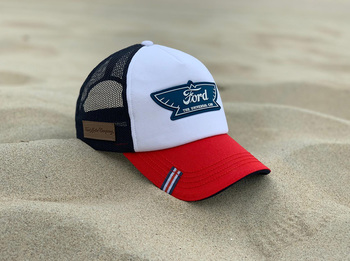
Stylish caps made of "ocean plastic"
 Industry is looking for environmentally friendly materials. One way is to work with what is already out there: for example plastic waste on beaches, which can be re-used before it reaches the sea.
Industry is looking for environmentally friendly materials. One way is to work with what is already out there: for example plastic waste on beaches, which can be re-used before it reaches the sea.Within the framework of sustainability, industry and therefore also the merchandising and promotional goods sector, is on the lookout for new ways and possibilities. Suppliers and customers alike agree that things can't go on as before. Due to the increasing demand for sustainable products, new ideas for environmentally friendly production, materials and packaging are constantly emerging. Organic materials such as organic cotton, which use and contaminate fewer resources in their production, have long been a major topic. At the same time, completely new materials such as bamboo and previously unnoticed waste products such as grass clippings, wheat straw and more are being used.
Even better than finding and using new materials is probably working with what is already there. In line with this principle, upcycling and recycling will become very important. Instead of newly produced PET, for example, RPET - recycled PET - is produced from used PET bottles and used in whole or in part for new products. The material has marginally different properties, but is excellent for many merchandising and promotional items. Within the upcycling trend, designers have endless possibilities for producing innovative products from used materials, be it car tyres, fire hoses, tarpaulins, coffee sacks etc.
One raw material that - sadly - is available in abundance is so-called "ocean plastic". Used, carelessly thrown away plastic packaging is a huge problem. Strong winds and rainfall drive this from unsecured landfills into the oceans. For the manufacture of new products, packaging is collected from waters, shores and beaches before it reaches the sea. The plastic waste is sorted, shredded, processed and turned into yarn, for example.
Cybergroup consistently pursues the topic of sustainability and integrates it demonstrably into its operating processes, and not only in the form of certification according to the DIN ISO 14001:2015 environmental standard. The team also actively keeps abreast of the latest products and new materials in order to offer customers the most sustainable products on the market. One initial development in this direction is the Ford Heritage Cap from the Ford Lifestyle Collection - a cool baseball cap made from recycled plastic from the beach, but without in any way compromising on design or style. Building on this, Cybergroup intends to consistently integrate further such products and materials into its collection in the medium term. One of many steps that will show the way to a sustainable future for the promotional goods industry.




